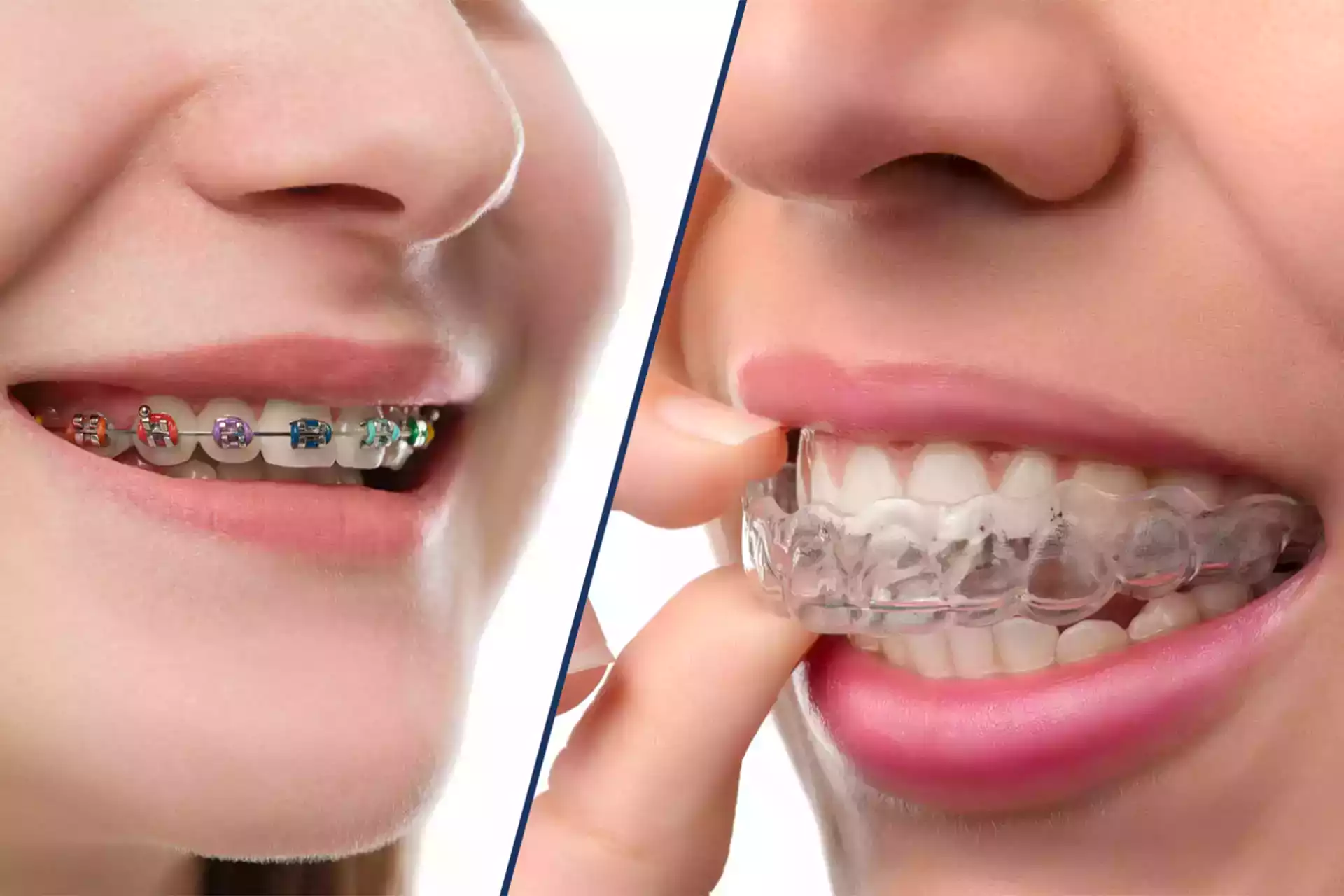Crooked teeth? Invisalign or braces could be the best options to perfectly align your teeth with minimum pain and discomfort. But which one is most suited to you? As a leading cosmetic surgery hospital in Europe, helping our patients understand the differences between Invisalign and braces is our top priority to ensure they achieve the desired outcome when it comes to their teeth. If you too are considering getting Invisalign or braces to enhance your teethes appearance, then take a closer look at what our experts have to say below.
Invisalign Or Braces
Invisalign and braces are two of the most common methods used to fix teeth alignment, improve your bite, and correct crowded teeth. Here are some of the ‘good to knows’ before getting started on your journey!
Invisalign
What Is Invisalign?
Invisalign is a set of transparent, acrylic braces moulded to your mouth used to fix a wide range of dental issues including spacing, crowding, gaps between the teeth, and mild-moderate over and under bites.
They are just as effective as other traditional methods of braces but offer more benefits including that they are removable to give your teeth some time off between meals and cleaning.
How Does Invisalign Work?
As part of your Invisalign treatment you will receive a set of clear ‘aligners’ that are custom created by taking a 3D picture of your mouth. This will ensure a perfect fit, helping to make sure you receive the desired results quickly and comfortably.
How Long Does Invisalign Take?
You will likely need to change your Invisalign every one to two weeks to ensure you are getting the most from your treatment, ensuring the new set endorse and track the minuet yet significant changes taking place to the position of your teeth.
Treatment length widely varies depending on the current state of your teeth though on average can take up to 1.5 years to complete.
Does Invisalign Hurt?
Whilst Invisalign is designed to cause less discomfort than traditional braces, you may still experience some discomfort or soreness though that confirms that your aligners are doing the right thing in terms of moving your teeth into position.
Braces
What Are Braces?
Unlike Invisalign, ‘brackets’ are stuck onto the teeth using glue with a wire thread through to form a brace. For comfort, elastic ties are positioned around each of the brackets to prevent you from cutting the inside of your mouth or tongue, also making it more enjoyable to consume food. Depending on your bite, you may also be required to hook rubber bands from the back of your brace to the front to fix the alignment.
How Do Brace Work?
Braces work in a similar way to Invisalign but instead of receiving a new aligner every couple of weeks you will be required to get your get your brace ‘tightened’ every 4 to 6 weeks depending on the movement of your teeth.
This is because as your teeth begin to move, the brace will begin to lose its grip so, to make sure your teeth continue to straighten as required, the pressure of them will need to be adjusted. Not getting your braces tightening when required may extend the amount of time you have them for.
How Long Do Braces Take?
When it comes to aligning your teeth with braces, treatment can last anywhere between 12 months to over 3 years with regular visits to the orthodontist required in between to make sure your teeth are continuing to move to the desired position.
Do Braces Hurt?
Unlike with Invisalign, you can’t remove your brace from your mouth when you want a break from it which can sometimes cause discomfort, particularly if you have had them tightened recently during which time you may find it difficult to consume food with a tough texture.
Despite that, many patients don’t recall the pain lasting longer than a few hours to four days, with the initial ache of the brace going away in a week’s time.
In Summary
Both braces and Invisalign offer several benefits, helping you to achieve the perfect smile in a short amount of time. However, depending on the results you want, either treatment could offer additional benefits to help you decide. If you are still unsure or would like further advice to make sure you select the right treatment for you, why not book a consultation with a member of our expert team. We’re here to help.
Complete our quick and easy contact form and a member of the team will get back to you with the next steps.
